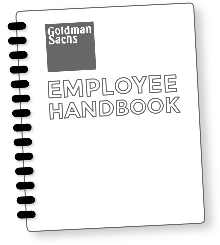Embrace That Every Day
Is Different
The majority of people working in an office will tell you that their wardrobe needs vary from day to day. Some days you're sitting at your desk for hours on end and others you're meeting with an important partner or client. Each scenario has a different need, so make sure you dress for each accordingly. A blazer isn't necessary every day, but when meeting your boss's boss's boss, it might be a good idea to toss one on.
Casual Doesn’t
Mean Sloppy
All of this isn't to say that you should be showing up to work in ratty sweats or rumpled shirts. This is still a place of business. And a sense of decorum and professionalism is needed—even if your boss is cool with everyone wearing jeans and T-shirts. The study also found that workers still have the most confidence in colleagues who put an effort into their appearance and look thoughtfully dressed. So, it seems, there's still something to be said for dressing for the job you want.
Be Confident
What we wear affects our confidence. And we should all feel great in our clothes. Your wardrobe, especially at work, should reflect who you are and showcase your best self. This isn't always attainable, but it's something to always consider. Whatever your work outfit calls for—suit and tie, T-shirt and jeans, lab coat, hard hat—make sure you feel your best in it.


































